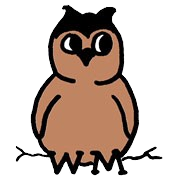Music
White Mere Community Primary School Music Rationale
Aims and objectives
Music is a unique way of communicating that can inspire and motivate children, and is a universal language. It is a vehicle for personal expression, and it can play an important part in the spiritual and emotional development of the individual, greatly influencing mental well-being. Music reflects aspects of culture and society, and so the teaching and learning of music enables children to better understand the world in which they live. It also plays an important part in helping children feel part of a community. Besides being a creative and enjoyable activity, music can also be a highly academic and demanding subject, with many scientists and mathematicians also being enthusiastic musicians. At White Mere, we provide opportunities for all children to create, play, perform and enjoy music, to develop skills, to appreciate a wide variety of musical forms, and to begin to make judgements about the quality of music.
The objectives of teaching music in our school are to enable children to:
- know and understand how sounds are made and organised into musical structures
- know how music is made through a variety of different instruments
- know how music is composed and written down
- know how music is influenced by the time, place and purpose for which it was written
- develop the interrelated skills of performing, composing and appreciating music.
Teaching and learning
At White Mere we make music an enjoyable learning experience. We encourage children to participate in a variety of musical experiences, through which we aim to build up the confidence of all children.
Singing lies at the heart of good music teaching at White Mere. Using Charanga music resources, our teaching focuses on developing the children’s ability to sing in tune, on their own, and with others. Through singing songs, children learn about the structure and organisation of music. We teach them to listen to and appreciate different forms of music. As children get older, we expect them to maintain their concentration for longer, and to listen to more extended pieces of music. Children develop descriptive skills in music lessons when learning about how music can represent feelings and emotions. We teach them the disciplined skills of recognising instruments and the interrelated musical elements of dynamics, rhythm, pitch, pulse and duration through engaging and stimulating activities. We also teach children to make music together through improvisation and composition, to understand standard and non-standard musical notation.
We recognise that in all classes children have different levels of ability and communication, and so we seek to provide suitable learning opportunities for all children, differentiating the challenges within each lesson by:
- Engaging in tasks which are open-ended and can have a variety of responses
- Engaging tasks of increasing difficulty (not all children complete all tasks)
- Providing resources of different complexity, depending on the ability of the child
- Using classroom assistants to support the work of individuals or groups of children
Additional music teaching
Children are offered the opportunity to study a musical instrument with peripatetic teachers.
These lessons are normally taught to small groups of children who have chosen to learn to play guitar or keyboard. This is in addition to the normal music teaching of the school, and usually takes place during lesson time or lunchtime. Children are given the opportunity to be entered for music awards when recommended by their instrumental teacher.
Music curriculum planning
At White Mere we use the original scheme of Charanga resources. It provides easy – to – follow lesson plans for both specialist and non-specialist and enables pupils to become experienced in the main musical elements. Units are built around well-known or unique songs or involve learning to play either recorder or glockenspiels. Each lesson incorporates listening, elements of dynamics such as finding the pulse, improvisation and composition and singing or playing. There are opportunities for performance inbuilt within each unit.
Skills are learnt in a progressive, cyclical way. Teachers are encouraged to keep brief, informal assessment points within the Charanga system, or on printed lesson plans and notes.
We engage the children in the direction of their learning, sharing the unit knowledge organisers at the beginning of each unit and returning to them as the unit progresses. We also plan to make use of the end – of – year Music passports, which show pupils how their music skills have increased over the year and prepare them for future learning.
Music in Early Years
We teach music in Nursery and Reception classes as an integral part of the topic work covered during the year. We relate the musical aspects of the children’s work to the objectives set out in the Early Learning Goals (ELGs) which underpin the curriculum planning for children aged three to five. Music contributes to the language development of a child as well as their personal and social development. Charanga in Early Years focuses on well-known, traditional rhymes and action songs which are part of early childhood. They are accessed through play and discrete music – making opportunities. The breadth of content allows music to be linked to topics, giving music a context within the busy Early Years curriculum.
